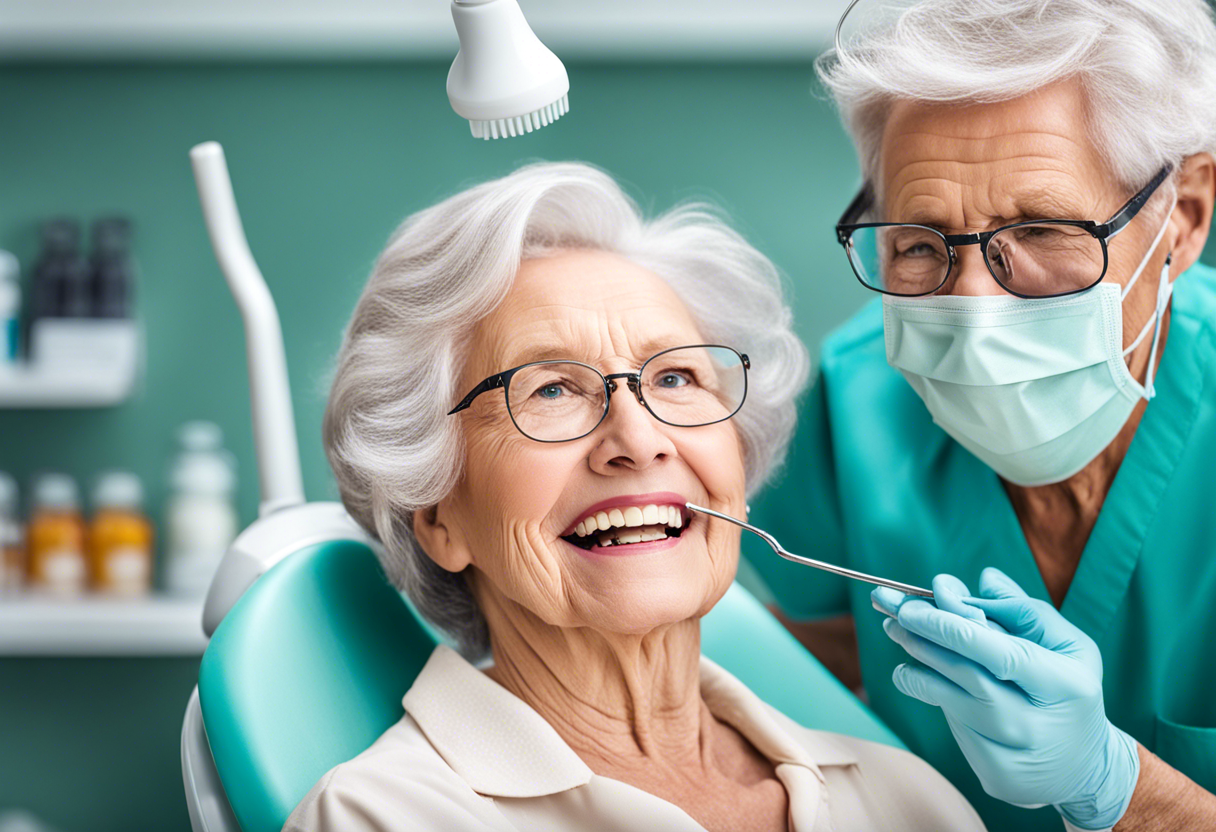Promoting Optimal Oral Health: Essentials of Dental Care for Aging Adults

As the golden years approach, the body undergoes a spectrum of changes. Among these, oral health often becomes a central concern for aging adults. The mouth, a gateway to overall well-being, can reflect and affect the general health of an individual. Thus, maintaining optimal oral health is not just about preserving a radiant smile; it's about sustaining the quality of life.
Understanding the unique challenges faced by aging adults when it comes to dental care is crucial. With age, the risk of developing various oral health issues, such as tooth decay, gum disease, tooth loss, and oral cancer, increases. Additionally, systemic health conditions like diabetes and heart disease can have direct implications on oral health. Moreover, the side effects of certain medications can exacerbate dental problems, leading to a complex interplay between aging, health, and oral care.
One of the fundamental aspects of dental care for aging adults is the prevention of tooth decay. Saliva production often diminishes with age, and since saliva plays a key role in neutralizing acids produced by bacteria in the mouth, its reduction can leave teeth more vulnerable to decay. To combat this, aging adults should be encouraged to drink plenty of water to stay hydrated and may benefit from using saliva substitutes or stimulants. Fluoride treatments, either in the form of toothpaste, mouthwash, or professional applications, can also help fortify tooth enamel and prevent decay.
Gum disease, or periodontitis, is another prevalent condition among older adults. It is primarily caused by the buildup of plaque, which can harden into tartar if not removed regularly. Over time, this can lead to inflammation of the gums, destruction of the supporting bone, and ultimately, tooth loss. The key to preventing gum disease is effective plaque control. This involves regular brushing with a soft-bristled toothbrush, flossing to remove plaque from between the teeth, and visiting the dentist for professional cleanings and check-ups.
For those who have difficulty with manual dexterity due to conditions such as arthritis, electric toothbrushes can be a boon. They are often easier to hold and use, and some models come with features specifically designed to aid in the removal of plaque and stimulation of the gums. Similarly, flossing aids and interdental brushes can help clean between teeth when traditional flossing is challenging.
Tooth loss, whether due to decay, gum disease, or injury, is more common in older adults. Missing teeth can affect the ability to chew and speak properly and can lead to nutritional deficiencies if one is unable to eat a variety of foods. Moreover, tooth loss can affect self-esteem and social interaction. Dentures, bridges, and implants are some of the options available to replace missing teeth. Each of these solutions has its own set of considerations, and a dental professional can help determine the best option for each individual based on their overall health, lifestyle, and budget.
Oral cancer is another critical concern for aging adults. The risk of oral cancer increases with age, particularly for those who use tobacco products or consume excessive amounts of alcohol. Regular dental check-ups are vital as they allow for the early detection of any suspicious lesions in the mouth. Early diagnosis and treatment significantly improve the prognosis for oral cancer.
The systemic health conditions that often accompany aging can also influence oral health. For example, diabetes can increase the risk of gum disease, and in turn, severe gum disease can exacerbate diabetes by affecting blood sugar control. Thus, managing these systemic conditions is an integral part of maintaining oral health. This often requires a collaborative approach between the patient, dentist, and other healthcare providers to ensure that both oral and overall health are being addressed.
Medications, a common component of managing health conditions in aging adults, can have side effects that impact oral health. Dry mouth, altered taste, and gum overgrowth are some examples. Patients should be encouraged to discuss their medications with their dentist, as there may be dental-specific interventions or alternative medications with fewer oral health side effects.
In addition to these individualized care strategies, there are broader considerations for promoting optimal oral health among aging adults. Accessibility to dental care can be a barrier for some, particularly for those with mobility issues or those residing in assisted living facilities. Mobile dental services and community dental programs can help bridge this gap, ensuring that even those who cannot easily travel to a dental office receive the care they need.
Education is also paramount. Aging adults, caregivers, and family members should be informed about the importance of oral health and how it can affect and be affected by other aspects of health. Simple educational tools and resources can empower individuals to take charge of their oral health, recognize early signs of dental issues, and understand when to seek professional help.
Finally, affordability of dental care can be a significant concern for aging adults, especially those on fixed incomes or without dental insurance. Programs that provide financial assistance or offer sliding scale fees can alleviate some of the financial burdens and make dental care more accessible to those in need.
The essence of promoting optimal oral health in aging adults lies in understanding the unique challenges they face and providing tailored solutions. Regular preventive care, effective management of systemic health conditions, and open communication with healthcare providers form the cornerstone of dental care for this demographic. By addressing barriers to care, providing education, and ensuring affordability, we can help aging adults maintain not just their oral health, but their overall health and quality of life. With a collaborative, proactive approach, we can ensure that the golden years are accompanied by a healthy, confident smile.